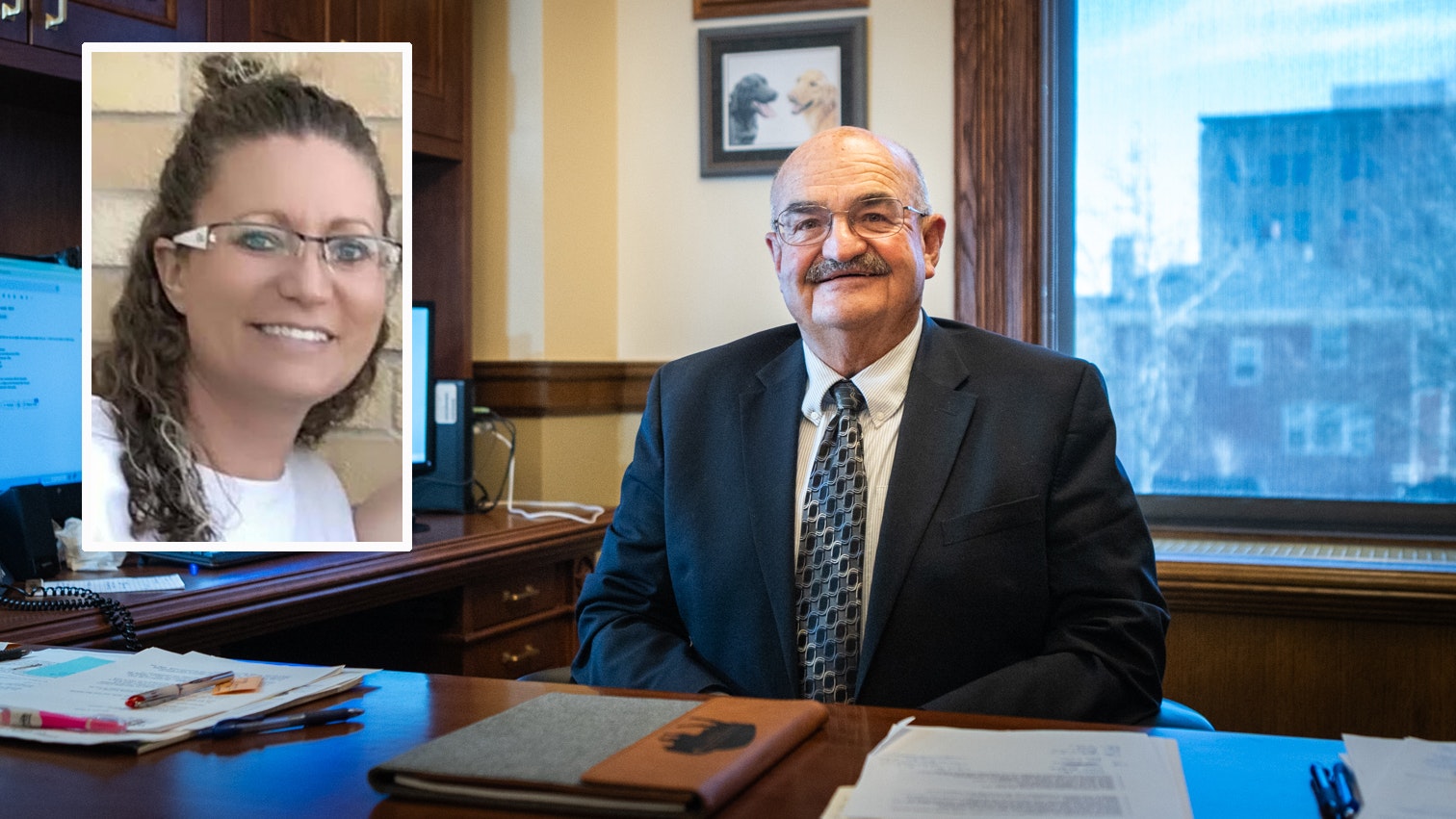The true intent of House Bill 159 was debated almost as much in Friday’s Wyoming House Labor, Health and Social Services Committee meeting as what the bill actually does.
HB 159 requires the Wyoming Department of Environmental Quality to do extensive new water testing for the presence of abortion medication in the state’s public water systems. It also requires women to bring dead fetus tissue back to the health care facilities where they receive abortion pills to end pregnancies after the substances are discharged from their bodies.
The bill passed the committee on a 6-2 vote with state Reps. Ken Clouston, R-Gillette, and Mike Yin, D-Jackson, voting against it.
Even Clouston, who’s been consistently pro-life on abortion issues since entering the Legislature in 2023, said he finds the bill improper.
“I think right now this bill is a little bit unreasonable and maybe a little ahead of its time,” he said.
Hidden Intentions?
Numerous people who testified and Yin accused the bill sponsor, Rep. John Bear, R-Gillette, of proposing the legislation under the guise of trying to discourage abortions in Wyoming. Yin said he struggled to take the bill seriously, but must because it could become law.
“It’s not really honest about what it’s trying to achieve,” Yin said. “The intent is not necessarily clean drinking water, the intent is to ban abortion.”
When speaking to Cowboy State Daily after the meeting, Bear wouldn’t deny that reducing abortions would be one of the results of his bill.
“I’m not denying it, but the intent is to protect the women,” he said. “It’s not going to stop any abortions. Does it make it more difficult? Yeah, there’s certain procedures that have to take place.”
But he also disagreed with an accusation made by some that his bill is meant to shame women by forcing them to return the discharged remains of a fetus in an orange biohazard waste container back to the facility where they got their abortion prescriptions.
“The reason that’s in there is for the safety of those women,” Bear said, adding that the biohazard bag could be placed inside another bag like a purse.
Penalties
The bill levies up to $10,000 in fines and up to three years in prison against medical providers who fail to provide the medical waste bag or schedule a follow-up appointment to happen within seven days of the administration of abortion pills.
It also requires that a provider be physically present with a woman when she ingests her first abortion pill.
“If you don’t know how far along you are, and you go ahead and take these drugs, then you could be creating a health hazard for yourself,” Bear said. “I don’t think doing this in-home is a safe way to do it.”
Bear was a major supporter of a 2023 bill banning most forms of abortion in Wyoming that was passed by the Legislature. That law is being challenged in court, and until the case is resolved, abortions remain legal in Wyoming.
If endocrine‑disrupting chemicals used in abortion drugs are found in public water systems, the abortion drug manufacturers shall be liable for the cleanup, remediation and any further preventative measures that the department of environmental quality may require.
Under the bill, any person may also bring a lawsuit against a manufacturer or manufacturers of abortion drugs up to six years after the discovery of the abortion drug in the wastewater, public water supply, or community water system or waters of the state.
Bear said whether a punishment could be levied against a company based outside the United States would depend on the relationship that company’s country has with the U.S.
Safe Drinking Water
The core purpose of the bill as stated by Bear is to eliminate the presence of abortion medicine in all public water systems in Wyoming out of concern for the risk they may provide for human health and the environment.
He cited a recently conducted and unpublished study by Pew Research finding a presence as high as 11.6 parts per trillion of endocrine-disrupting chemicals in potholes across America.
Rene Hinkle, a Cheyenne OB/GYN, countered this argument and referenced a 1995 U.S. Food and Drug Administration determination that anything less than 1 part per billion has no harmful effects on the environment.
She questioned if the bill would also require women to catch their urine and feces as those substances would also contain the abortion medication they took.
Mifepristone is the most commonly used abortion medication in America. The trouble with testing specifically for this drug is that it’s used for treating other medical conditions besides abortions, like Cushing syndrome and miscarriages.
Jennifer Zygmunt, water quality administrator for the Wyoming Department of Environmental Quality, said her division of DEQ doesn’t now possess the capability to test for this drug, as it doesn’t have toxicologists on staff. This cost would run an estimated $300,000 per year.
But she added that the Environmental Protection Agency has no established methods for the testing of these specific chemicals in public water.
That didn’t seem to dissuade the majority of members on the committee like Rep. Darrin McCann, R-Rock Springs, who expressed confidence this form of testing could be readily established for the bill, which would go into effect immediately.
“We already have that technology, it probably won’t be very difficult to figure that out,” he said.
DEQ also doesn’t have regulations for the disposal of medical waste or prescription drugs.
Zygmunt expressed doubt that the testing would be able to pick up the presence of abortion drugs due to Wyoming’s small population and the relatively rare usage of these drugs. She also said it would be unlikely the timing of water tests would be lined up with when these drugs enter Wyoming’s water treatment plants.
“We recognize the intent of this bill, we do want to protect our public health and the environment from the risks of pharmaceuticals and endocrine-disrupting compounds, but I do just want to make sure the committee is aware of some potential limitations as far as our ability to carry out these duties,” Zygmunt said.
Yin also accused Bear of getting his bill from an outside, national organization.
Bear told Cowboy State Daily he was inspired to draft his bill from a pro-life conference he attended last fall. He said he worked with the Legislative Service Office on crafting the bill.
Surgical Abortions Bill Also Passes
The committee also passed House Bill 42 on a 7-1 vote, which would require all surgical abortion clinics in Wyoming to be licensed by the state. Yin was the only member to vote against it.
The bill would designate surgical abortion centers as ambulatory surgical centers and assign them the same standards as other facilities of this nature around the state.
Yin and others who spoke against the bill said it specifically targets Wellspring Health Access clinic in Casper, the only medical provider in Wyoming that performs surgical abortions.
Christine Lichtenfels, executive director at Chelsea’s Fund, told Cowboy State Daily if HB 42 passes, her organization has “every anticipation of challenging” it in court.
Leo Wolfson can be reached at leo@cowboystatedaily.com.








